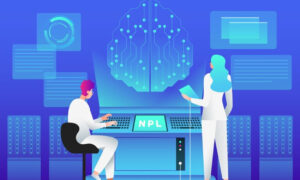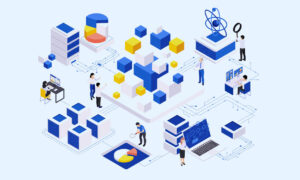Next-Gen Supply Chain: Digital Engineering Applications
June 24, 2024
In the dynamic landscape of modern business, supply chains stand as the backbone of operations, ensuring the smooth flow of goods and services from production to consumption. However, traditional supply chain models are facing unprecedented challenges in meeting the demands of an increasingly interconnected and fast-paced world. To address these challenges, businesses are turning to next-generation digital engineering applications to revolutionize their supply chain processes.
Understanding Next-Gen Digital Engineering Applications
Next-gen digital engineering applications encompass a diverse range of technologies and tools aimed at optimizing various aspects of the supply chain, from procurement and manufacturing to distribution and logistics. These applications leverage advanced technologies such as artificial intelligence (AI), machine learning (ML), big data analytics, the Internet of Things (IoT), and blockchain to drive efficiency, visibility, and agility across the supply chain ecosystem.
1. AI and Machine Learning
- AI and ML algorithms are instrumental in predicting demand, optimizing inventory levels, and enhancing forecasting accuracy. By analyzing historical data, market trends, and customer behavior, these technologies enable businesses to make data-driven decisions, minimize stockouts, and reduce excess inventory.
2. IoT and Sensor Technology
- IoT devices and sensors play a crucial role in real-time monitoring and tracking of goods throughout the supply chain. From monitoring temperature and humidity levels in transit to tracking the location of shipments, IoT-enabled devices provide valuable insights to improve efficiency, ensure product quality, and mitigate risks.
3. Big Data Analytics
- Big data analytics empowers organizations to extract actionable insights from vast volumes of data generated across the supply chain. By analyzing data related to production, transportation, and customer preferences, businesses can identify inefficiencies, optimize processes, and enhance overall performance.
4. Blockchain Technology
- Blockchain technology offers a secure and transparent platform for recording and verifying transactions across the supply chain. By providing a decentralized ledger system, blockchain enhances traceability, reduces fraud, and fosters trust among stakeholders, thereby improving accountability and reliability.
The Impact on Supply Chain Operations
The integration of next-gen digital engineering applications into supply chain operations brings about transformative benefits, including:
Enhanced Visibility and Transparency
By leveraging real-time data and analytics, businesses gain unprecedented visibility into every stage of the supply chain. This transparency enables proactive decision-making, timely problem-solving, and improved collaboration among stakeholders.
Improved Efficiency and Agility
Automation and optimization driven by digital engineering applications streamline processes, minimize bottlenecks, and reduce lead times. This enhanced efficiency enables businesses to respond swiftly to market changes, customer demands, and unforeseen disruptions.
Cost Reduction and Optimization
Through better resource allocation, inventory management, and predictive maintenance, businesses can significantly reduce operational costs while maximizing resource utilization. Furthermore, the optimization of transportation routes and logistics operations leads to cost savings and environmental sustainability.
Enhanced Customer Experience
By delivering products faster, ensuring quality consistency, and providing real-time updates on shipments, businesses can elevate the overall customer experience. Enhanced satisfaction and loyalty result from meeting and exceeding customer expectations in terms of product availability, delivery speed, and service quality.
Conclusion: The Future of Next-Gen Digital Engineering Applications
In conclusion, the development and implementation of next-gen digital engineering applications hold immense potential for transforming supply chain management in the digital age. By harnessing the power of AI, IoT, big data analytics, and blockchain, businesses can unlock new levels of efficiency, agility, and resilience within their supply chains. The capabilities offered by these technologies pave the way for a future where supply chains are not just responsive but predictive, enabling businesses to stay ahead of the curve and deliver value to customers in an ever-evolving marketplace. As technology continues to evolve, the adoption of next-gen digital engineering applications will be paramount for businesses seeking to thrive in the competitive landscape of tomorrow’s supply chains.




